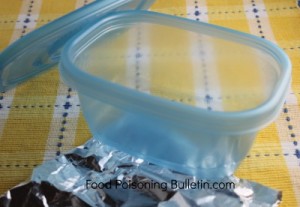New studies from NYU Langone Medical Center have shown that two chemicals used to strengthen plastic wrap, soap, cosmetics, and processed food containers are linked to a risk of high blood pressure and diabetes in children and adolescents. These compounds are “safer” replacements for other harmful chemicals in plastics.
 The compounds, d-isononyl phthalate (DINP) and di-isodecyl phthalate (DIDP) are replacements for di-2-ethylhexylphlatate, or DEHP, which has similar adverse effects. All are phthalates. These are the first studies to examine potential health risks from DEHP replacements.
The compounds, d-isononyl phthalate (DINP) and di-isodecyl phthalate (DIDP) are replacements for di-2-ethylhexylphlatate, or DEHP, which has similar adverse effects. All are phthalates. These are the first studies to examine potential health risks from DEHP replacements.
Lead investigator Dr. Leonardo Trasande, an associate professor of pediatrics, environmental medicine, and population health at NYU Langone, said, “our research adds to the growing concerns that environmental chemicals might be independent contributors to insulin resistance, elevated blood pressure and other metabolic disorders.”
Researchers found an association between DINP and DIDP concentrations and increased insulin resistance, which is a precursor for diabetes. DEHP was banned in 2004 in Europe after researchers found problems with the compound. In the US, manufacturers are replacing DEHP with DINP and DIDP.
The researchers suggest using wax paper and aluminum foil as an alternative to plastic containers for storing food. Transade added, “a dietary intervention that introduced fresh foods that were not canned or packaged in plastic reduced phthalate metabolites substantially.”
In addition, consumers can limit their exposure to phthalates with some easy steps. Trasande said not to microwave food in plastic containers; do not cover food in the microwave in plastic wrap, and wash plastic food containers by hand instead of in the dishwasher. The dishwasher soap chemicals can cause increased leaching of plasticizers into food. Also avoid using plastic containers labeled with the numbers 3, 6, or 7 inside the recycle symbol.




